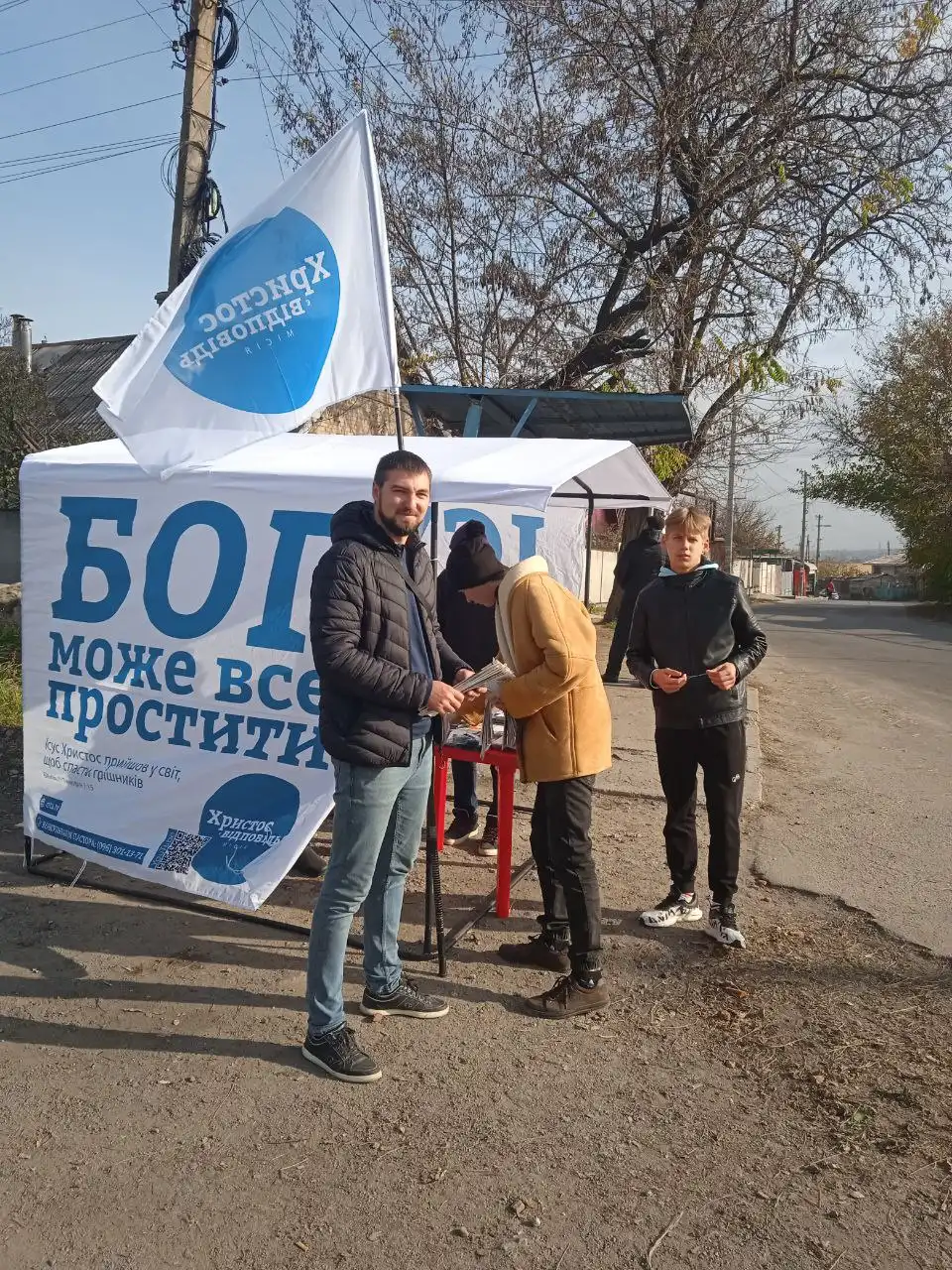Missionaries of Donbas: Life During the War in Ukraine
23 December 2022
The year of 2016. Two graduates of the missionary school with a six months difference in their training programs from the Zaporizhzhia region end up in Donbas. They were trained to minister in war zones.
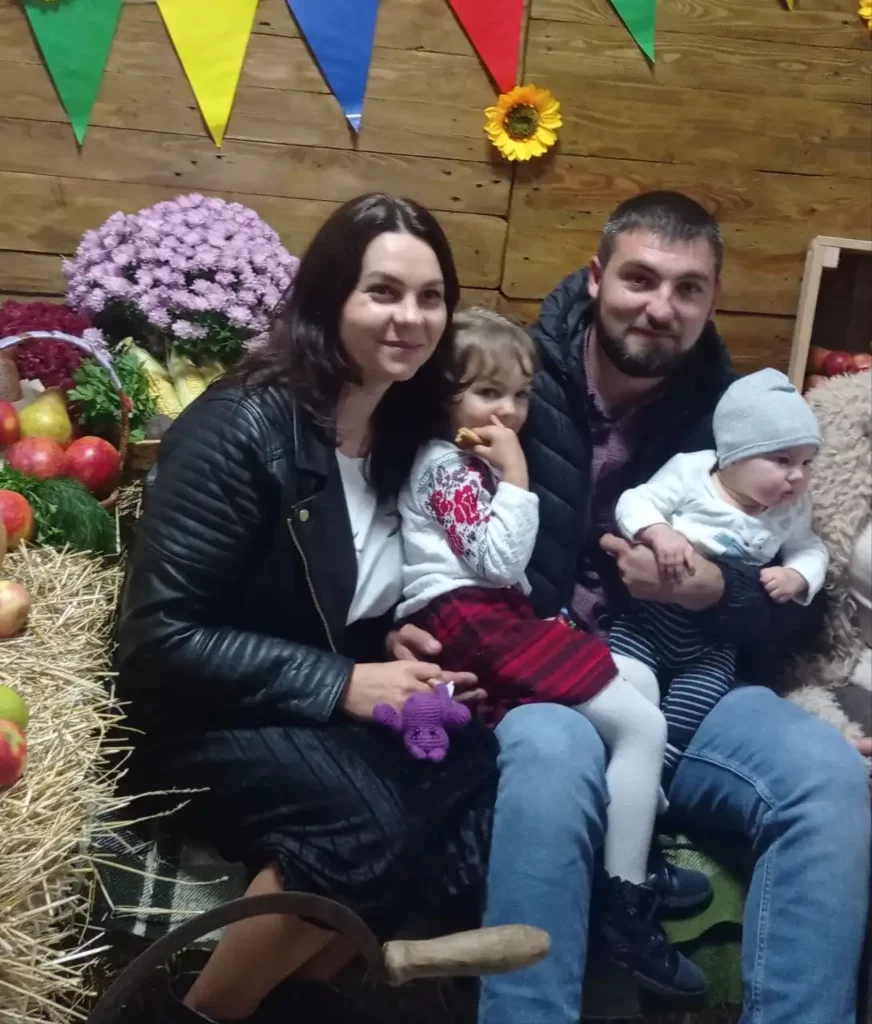
Andriy ended up in the Donetsk region, in the city of Vuhledar, and later in the village of Prechystivka, a year later he got married:
“At first, we came from Vuhledar to this village for events which we held together with ministers from other cities, in summer we organized daytime children’s camps, and in the evenings we had outreach events. The locals listened attentively to God’s word. Seeing such feedback from people, my wife and I had a desire to visit them regularly. And six months later, we completely moved to Prechystivka. We felt that we could go where no one had ministered before.”
Oleksiy and his wife got to Rubizhne, in the Luhansk region, as assistant pastors, not suspecting that they would immediately have to play leading roles in the ministry:
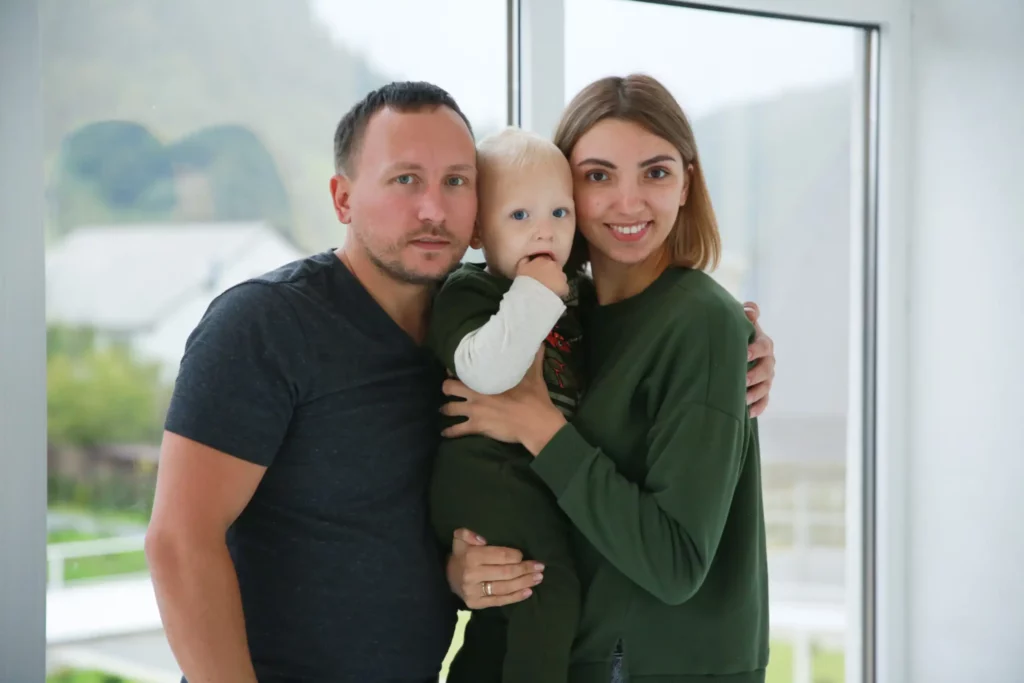
“I doubted for a long time, because such things do not come easily to me. I went to an unknown city. I wanted to understand: is it God or is it a human factor? I was waiting for a word from God, because I understood that if I acted on emotions, and problems came tomorrow and emotions calmed down, I still had to continue. I prayed with my wife and understood that we should move to Rubizhne. At first, I was not supposed to be there as a minister number one, but as an assistant, but it so happened that the family with whom we were supposed to minister did not come. That’s how we took this plow.”
Missionaries are responsible for children’s ministries, events and clubs, youth gatherings, street outreach events, Bible study groups, services in local churches, tent ministries, help to the needy and families in difficult circumstances, care for the lonely and elderly.
Donbas before the war of 2022. Memories of missionaries.
Oleksiy
“Before moving to the Luhansk region, I had never been to Donbas. Working with the people of the eastern region, I saw a certain pride. There was a sense of an “inflated” position: “we are the best”, “we don’t need anything”, “we are hard workers, we will break through”, “if you can’t help yourself, no one will help you”. “What kind of God? Why is He needed?”
There were, of course, those who sincerely and openly accepted the Lord.
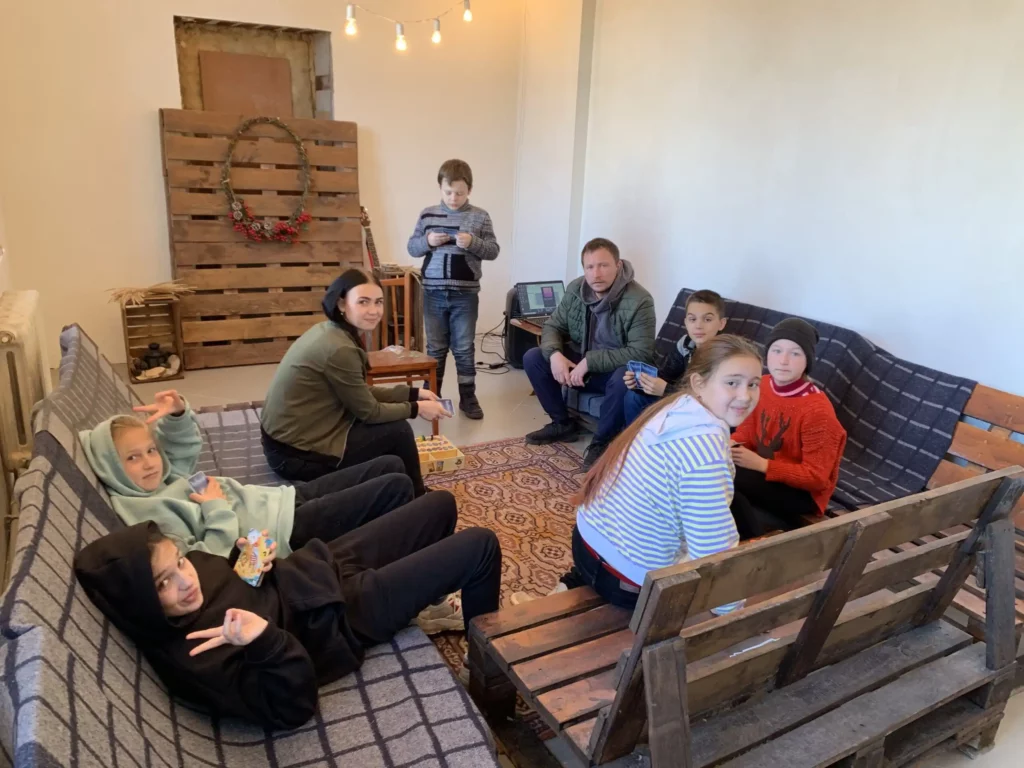
Then, in 2016, people were seeking the Lord, because the events of 2014 in Donbas shook many. People were open to God, we became an answer to their physical and spiritual needs. We saw the fulfillment of the motto of our missionary school: “We go where there is pain, to proclaim the truth of God and restore the destroyed.” Keeping this in mind, we boldly got to know people, communicated with them, and many were open to prayers and wanted to know God. But every year, I noticed that their attitude to God and faith began to harden, because the so-called stability returned to their lives: people were working again, the infrastructure was being restored.”
Andriy
“People in Donbas are very hardworking. Hard metallurgical and mining work (the mine works around the clock in 4 shifts), there are many wheat, barley and sunflower fields taking a lot of effort and time. Residents of the Donetsk region love their region very much and are proud of it. They often mention Donetsk and regret that in 2014 the city was under occupation.
There are many Orthodox churches and monasteries in Donbas. According to my observations, people mainly considered themselves Orthodox, and they treated Evangelical believers with caution, considering them “sectarians”. At the same time, people reached out to God, asked questions and wanted to understand what faith is all about.
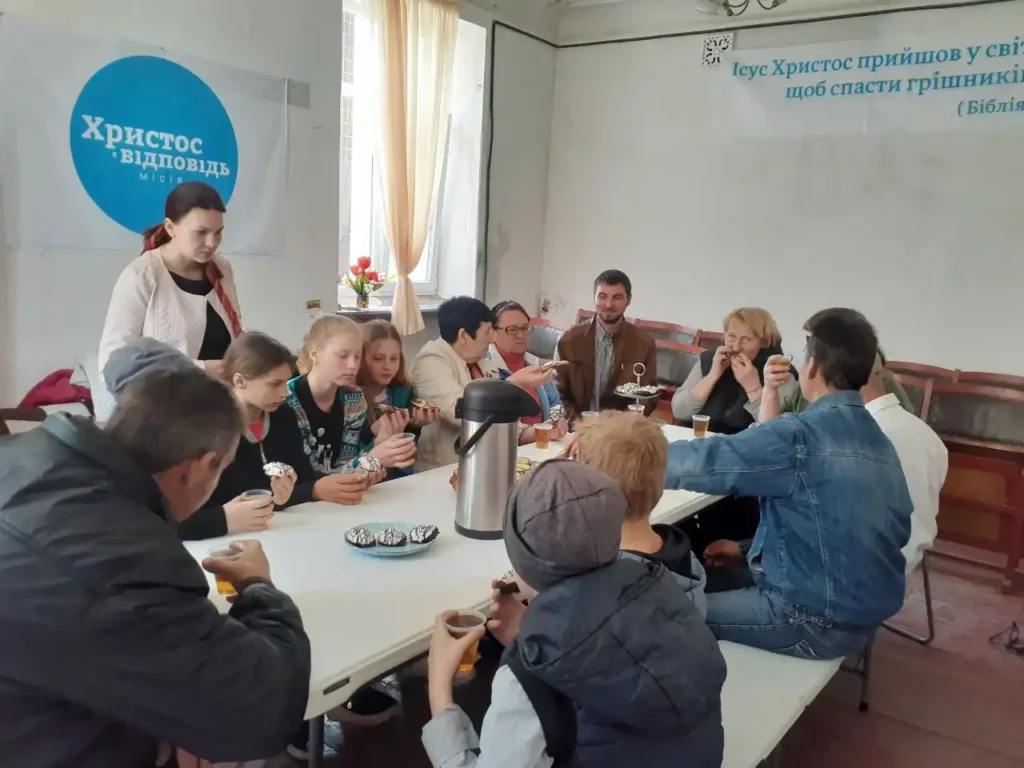
Missionary work, ministries and helping people did their job, and people’s ideas about the church and faith in God changed. This was especially evident through the ministry to children whose parents allowed them to go to Christian events.”
Adjustments to the war of 2022 or the life of “Eastern” missionaries in the west of Ukraine
Chernivtsi. It is a nice city. In the first days at the beginning of the war, I thanked the Lord that there was a church here that accepted not only us missionaries, but also other displaced persons whom I evacuated from the eastern region later. I openly offered people to leave, knowing that they would be safe, that they would be taken care of and that no one would be left on the street, although not everyone believed me. I thanked the Lord for the brothers and sisters who lent a helping hand. The church in Chernivtsi helped us a lot both financially and with housing. We didn’t need anything. I am grateful to them for that! We are one big family in God.
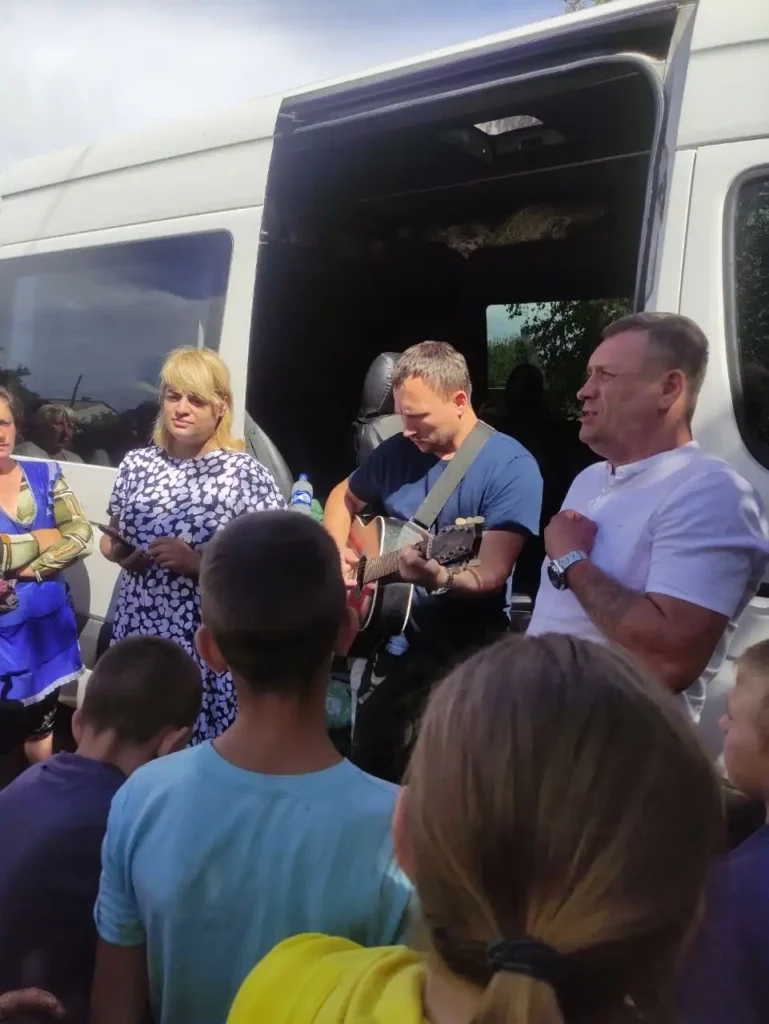
Rubizhne is my region, my heart aches for it. I went there with humanitarian aid before they occupied it. We were forced to leave the Luhansk Region, but sooner or later we will return there anyway. How will it be? It is not known, because the territory in Rubizhny and our church were bombed.
We were in Chernivtsi temporarily. I didn’t find my ministry here for more than six months. Of course, we tried to help in every possible way.”
Andriy.
“At the beginning of March, my family and the church evacuated to Kamianets-Podilskyi (Khmelnytskyi region). Only here could they receive such a large number of people. We had known this church before.
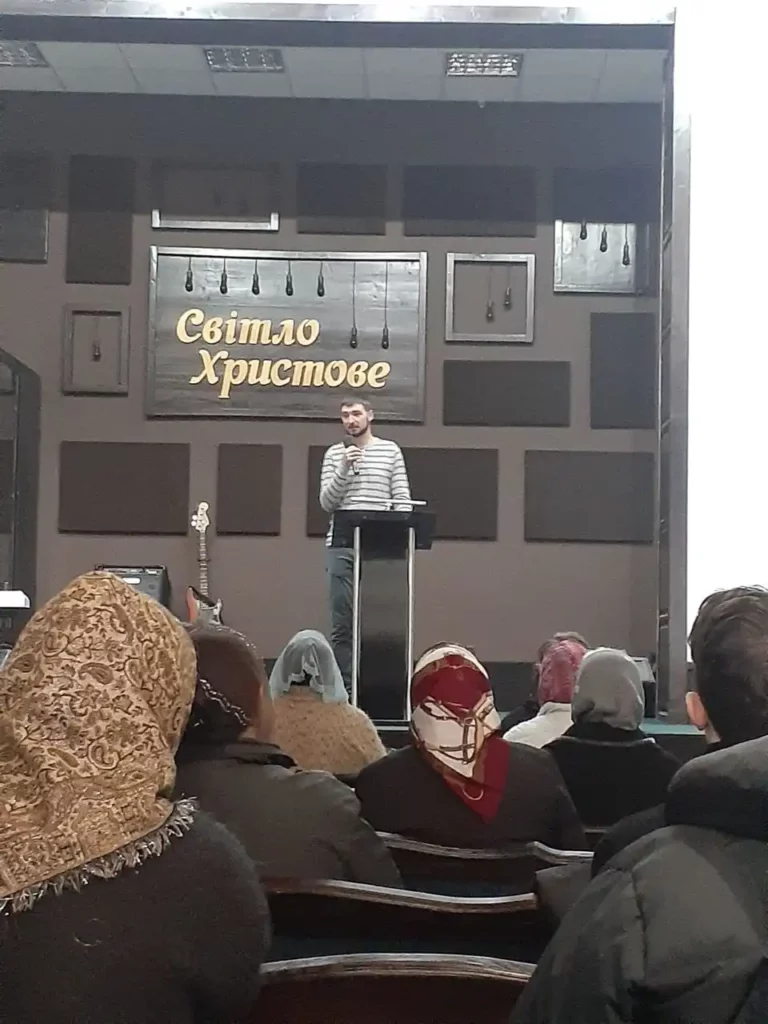
While being there, we were involved in evacuation from the East, humanitarian aid, ministry to the displaced .
But there are many churches in this city. Of course, we found something to do, but we asked ourselves how much our help is needed in this city? After all, we were trained as ministers for the front-line zone. I asked myself: what has changed since Russia invaded back in 2014? Looking for a safe place for your family? Yes, we were not heroic, realizing that we have wives and small children. But at the same time, we felt that we should return to those regions, since at this stage we cannot minister in Donbas.
Work can be found everywhere, but how much will it be missionary work?”
Closer to their lands: missionaries serve in Zaporizhzhia
At the end of September and in October, Ukraine and the world shuddered with horror, seeing the consequences of Russian missile attacks and the attacks of shahids in Zaporizhzhia. The Russian army cynically attacked humanitarian convoys and civilian objects at night and early in the morning: dozens of people died, destroyed houses, schools, hospitals, high-rise buildings and houses, and damaged historical monuments.
It was at this time that missionaries with their families from Western Ukraine moved to Zaporizhzhia.
Oleksiy
“During one of the morning prayers, a text from the Bible about Moses became close to me, where it is said that he preferred to suffer with his people. With this word, I seemed to be ready to act and go to Zaporizhzhia.
Yes, there are enough churches there, but many have left, and there are also a large number of TDPs in the city. One of my inner calls is that I am needed more in this city.
From Chernivtsi, it was 1,500 km to get to the front-line places, where we went with humanitarian cargo, although we were given both food and finances for fuel, but each time it was more difficult to do it.
We arrived in Zaporizhzhia, from here we are closer to the war zone. Here, of course, it is more dangerous. But now it is dangerous all over Ukraine. This did not become an obstacle for making a decision, and by the way, it is not only mine, my wife and I decided so.
Families in difficult life circumstances who still live in Zaporizhzhia need help. The ministers in the front-line areas have left, and we are here to replace them.
We realized that we would be more helpful here.
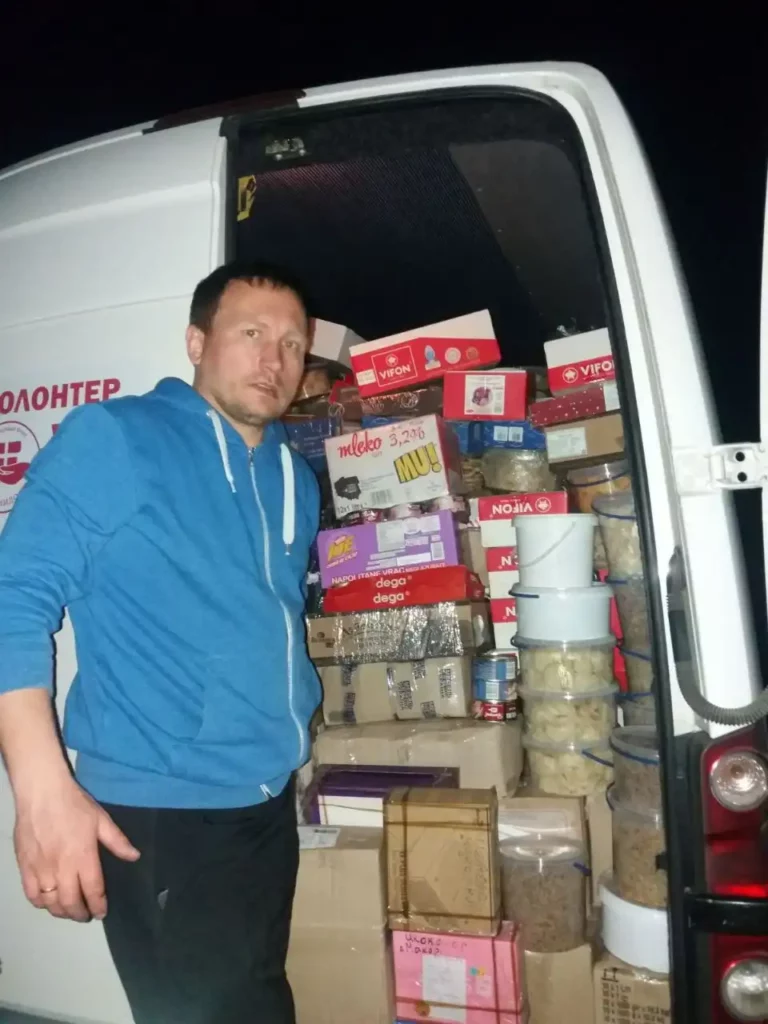
We travel with humanitarian aid in the region, we take someone out. We conduct children’s clubs, street evangelism, organized clubs for children from low-income families with feeding in three points of the city (up to 30 children come to the clubs each time), we visit families in need, we are looking for grants to help with food and children’s clothes.”
“While serving in Kamianets-Podilskyi, I did not experience fullness, especially recently before leaving, I did not see further development.
Andriy.
“While ministering in Kamianets-Podilskyi, I did not experience fullness, especially before leaving, I did not see further development.
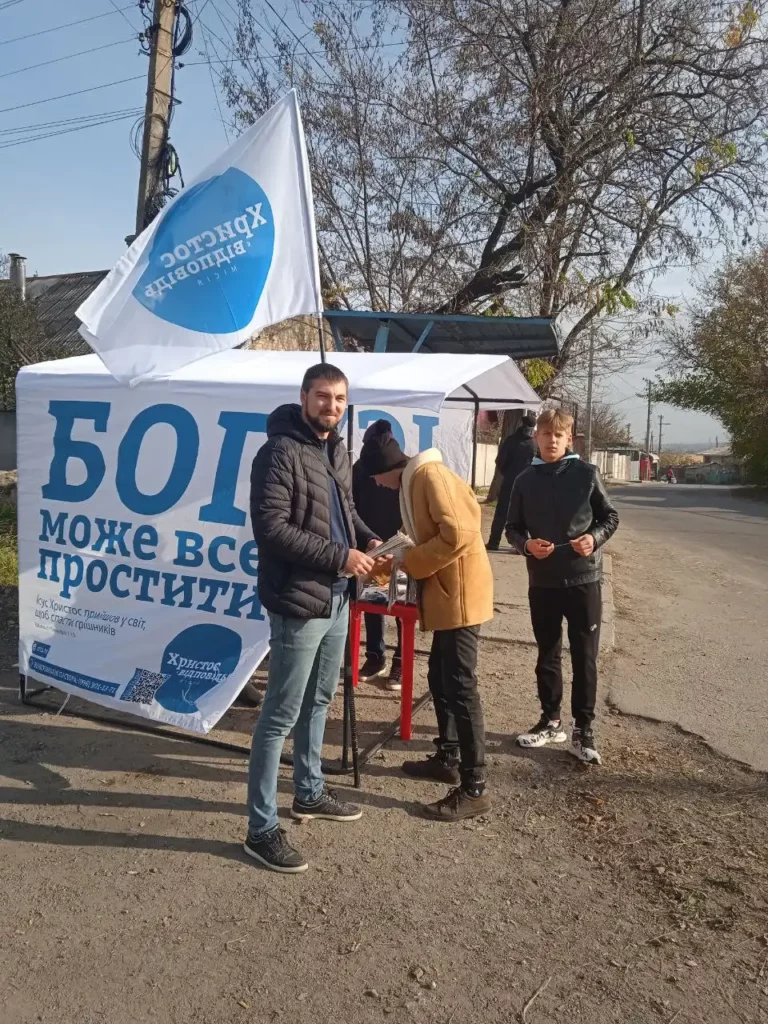
And Zaporizhzhia is bigger, and we are closer to the war zone, so that we can minister to the people there.”
What should young missionaries know?
Andriy:
“The time we devote to the Lord, although it is not always easy, will certainly never be in vain. You will be helpful to others and see it yourself. When we serve the Lord, first of all, it changes us. Ministry helps us to live and move forward, to find joy no matter what. It happens that there is not enough money, you do not see the result for a long time and you ask: is there any benefit in what I am doing? This is how you become rooted in faithfulness and love for God”
Oleksiy:
“Learn to trust the Lord regardless of external factors, because everything around may not be according to His plan. To be sincere before Him and with myself in order to understand whether it is me who wants to realize my plans or it is what the Lord is calling me to do. It is a personal walk and fellowship with Him that will teach you this.
Always consult with senior mentors, do not be in the state of “no one dictates to me”.There must be spiritual leaders in our lives who we can be accountable to.
When I repented in 2015, I had one worn pair of jeans, wearing which I went to study at a missionary school, and there they completely ripped. I just didn’t have others… I was afraid to have a family, I thought about how I would be able to feed my wife and children.
But today I am grateful to the Lord. When I began to serve God, He gave me a helper. We have a child, and many blessings from Him.”
The interview was made by the press center of the CITA ministries.
